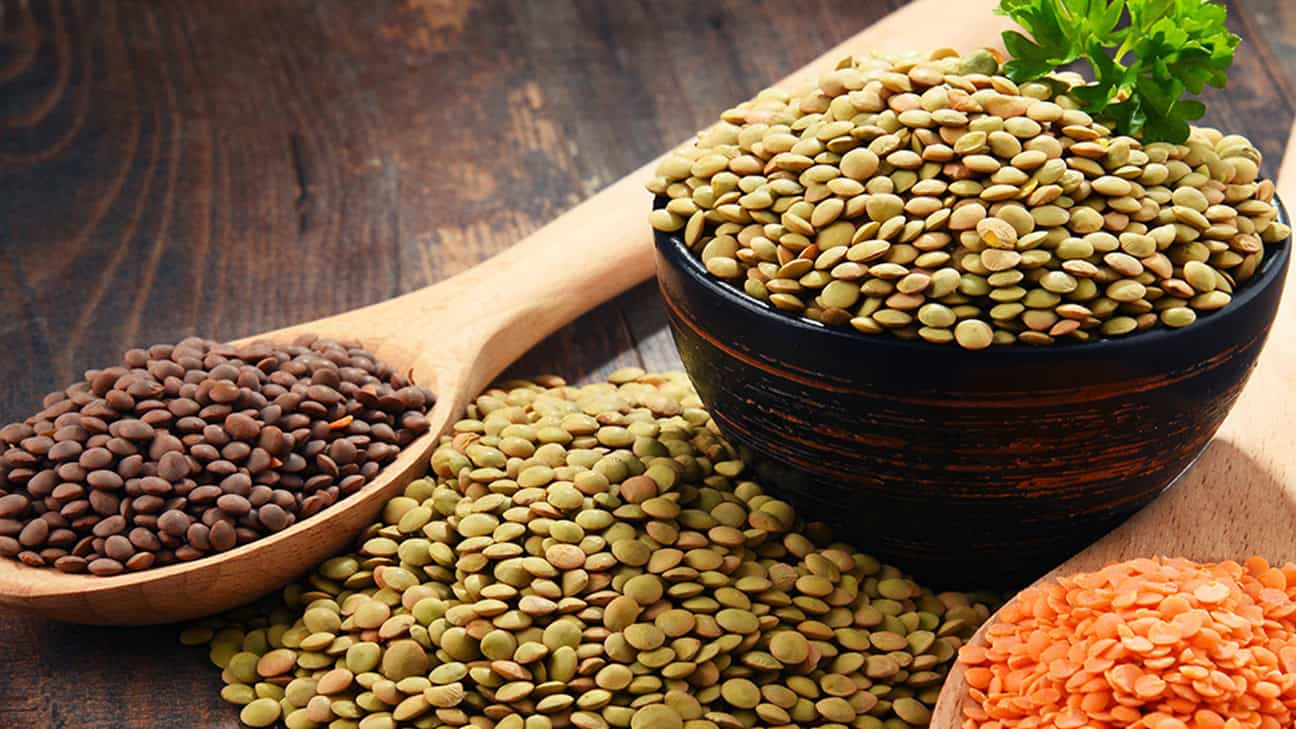
Though they are tiny, lentils are nutritious food that packs quite the punch when it comes to health benefits.
Lentils: The tiny legumes packed with big health benefits
Published February 3, 2025By Caitlyn Bowman, D.O., CNHSA
Lentils, one of the oldest cultivated crops in human history, have nourished people for thousands of years.
These tiny legumes, first grown in the Fertile Crescent, were revered in ancient times—found in Egyptian tombs and sustaining Roman soldiers.
Today, lentils remain a global staple, cherished for their affordability, versatility, and remarkable health benefits. Whether you’re looking to boost nutrition, maintain a healthy weight, or save on groceries, lentils are a powerful addition to your meals.
Brain and Cancer Protection
Lentils shine when it comes to brain health. Countries like India, with high lentil consumption, report some of the world’s lowest dementia rates.
Packed with antioxidants, polyphenols, and nearly 90% of your daily folate needs in two cups, lentils help protect brain cells and preserve cognitive function.
Lentils are also linked to cancer prevention. Their high fiber content promotes gut health, reducing inflammation and lowering colorectal cancer risk. Polyphenols and antioxidants in lentils combat cell damage linked to breast, prostate, and other cancers, making them a powerful ally in long-term health.
Lentils vs. Meat: A Nutrient Showdown
A common misconception is that red meat is the ultimate source of essential nutrients, particularly iron. However, lentils give red meat serious competition.
Two cups of cooked lentils provide 6.6 milligrams of iron, compared to 5.2 milligrams in the same serving of cooked ground beef.
While the iron in lentils (non-heme iron) isn’t absorbed as efficiently as the iron in red meat (heme iron), pairing lentils with vitamin C-rich foods like tomatoes, citrus, or bell peppers can significantly enhance absorption.
But iron is just the beginning. Lentils outshine meat in other key micronutrients as well:
Folate: Lentils contain an impressive 730 micrograms per two cups, covering nearly all of the recommended daily intake. Ground beef, by contrast, offers just 45 micrograms, a fraction of what lentils provide. Folate is essential for DNA repair, red blood cell production, and brain health.
Magnesium: Lentils pack 140 milligrams of magnesium per two cups, while ground beef contains a negligible 20 milligrams. Magnesium supports muscle function, nerve health, and energy production.
Potassium: Lentils deliver 1,000 milligrams of potassium per two cups, a critical nutrient for heart health and blood pressure regulation. Ground beef provides only about 600 milligrams in the same serving.
Fiber: Meat contains no fiber, while lentils offer 30 grams per two cups, promoting gut health, blood sugar stability, and weight management.
While meat does provide some nutrients, like vitamin B12, lentils excel in offering a broader spectrum of micronutrients without the saturated fat and cholesterol. Lentils also provide additional antioxidants and polyphenols, which support overall health and help protect against chronic diseases like cancer and heart disease.
An Affordable and Versatile Superfood
Lentils can replace less nutritious ingredients in countless dishes, transforming everyday meals into healthier versions. For instance, lentils can stand in for ground beef in tacos, lasagna, chili, or shepherd’s pie.
While two cups of ground beef cost around $5 and contain 480 calories, 36 grams of protein, and 32 grams of fat (12 grams saturated), lentils offer the same 36 grams of protein for under $1, with only 1 gram of fat and 30 grams of fiber.
This simple swap cuts unhealthy fats and cholesterol while boosting heart-healthy nutrients.
Lentils also make an excellent alternative to mashed potatoes.
A serving of mashed potatoes with butter and milk may cost $1–$2 and offers about 400 calories, 18 grams of fat (11 grams saturated), and just 4 grams of fiber.
In contrast, two cups of lentils cost under $0.50, deliver 36 grams of protein, and provide eight times the fiber with virtually no fat. Lentils’ creamy texture and savory flavor make them an ideal side dish for almost any meal.